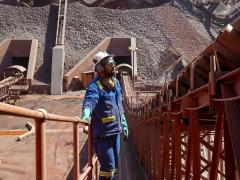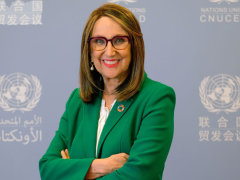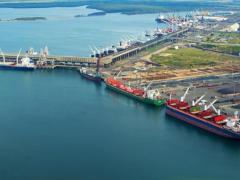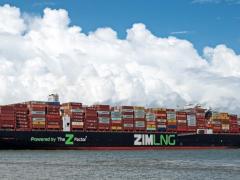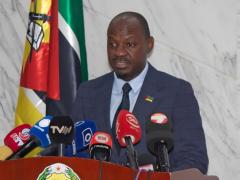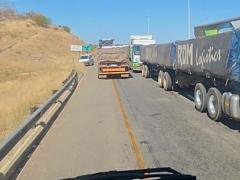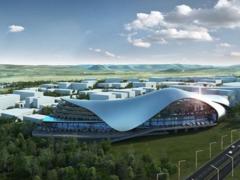South Africa is on the right track towards overhauling its struggling transport systems, Business Leadership SA (BLSA) has said, but recovery in the logistics sector is held back by nagging issues – crime, asset failures, funding, institutional gaps and port inefficiencies.
In a Quarterly Review (QR) released on August 12, BLSA lauds the 2023 Freight Logistics Roadmap (FLR) and Operation Vulindlela, aimed at economic reforms and recovery.
However, whereas these initiatives and completed structural reforms are certainly ambitious, “implementation remains uneven”, the QR says.
It also stresses that “persistent operational breakdowns continue to limit exports and hamper economic growth”, overshadowing institutional advances and logistics recovery advances already reached.
“The most notable progress has come in the unbundling of Transnet’s freight rail operations,” the review says in the section dedicated to the country’s freight industry.
It makes specific mention of rail freight developments, particularly the 3rd-party open-access process under way at Transnet Freight Rail.
“The Transnet Rail Infrastructure Manager (TRIM) became operational in October 2024 under acting chief executive Moshe Motlohi, while Russel Baatjies now heads the newly formed Transnet Freight Rail Operating Company (TFROC),” the review points out.
“Supported by a R47 billion National Treasury guarantee, the split is intended to end Transnet’s decades-long integrated monopoly and pave the way for third-party access to the rail network.”
In the same vein, it lauds the Network Statement approved by Transport Minister Barbara Creecy last December, setting out the terms for private rail access.
TRIM subsequently made over 209 million tonnes of capacity available to private operators, attracting 98 slot applications.
The private sector participation (PSP) unit to be launched through funding by the Development Bank of SA and National Treasury adds to early milestones reached in revitalising the country’s multimodal freight sector, the review says.
It includes the issuing of “requests for information to guide PSP development in priority freight corridors – Northern Cape (iron ore and manganese), Richards Bay (coal and chrome), and the Gauteng–Durban intermodal route” by the Department of Transport (DoT) in March.
The review also applauds Transnet for “pushing ahead with concessions beyond the delayed Durban Pier 2 project. These include projects in Ngqura, Gqeberha, Cape Town and Richards Bay. In December 2024, FFS Tank Terminals was selected for a 25-year Cape Town liquid bulk concession, although the contract is yet to be signed.”
It furthermore adds that “a planned concession at Ngqura will be re-tendered, while tenders worth R17 billion are open for a Richards Bay liquid bulk and container expansion. A planned concession at Ngqura will be re-tendered, while tenders worth R17bn are open for a Richards Bay liquid bulk and container expansion.”
And yet issues remain, especially port-side, where privatisation opportunities at Durban Pier 2 have been placed on hold by AP Møller-Mærsk’s High Court litigation against the private tender earlier awarded to International Container Terminal Services Inc.
The review says: “Despite the structural changes, operational performance has yet to significantly improve. Freight volumes rose modestly to 161 million tonnes by March 2025 – short of the 170-million-tonne target and well below the FLR’s 193-million-tonne stretch goal.”
Constraints to urgently address include cable theft, which resulted in damages of R4bn in 2024. On the Northern Corridor alone, 1 300 incidents of infrastructural criminality were recorded for the same period, the BLSA found.
As for asset failure, “ageing infrastructure and manual systems persist, with 394 new locomotives standing idle due to spare parts shortages – a R70bn fleet management failure”.
Regarding funding, institutional gaps and port inefficiency, the following issues are flagged:
- Transnet’s debt is projected to reach R151bn in 2025, with annual debt service costs of R17bn. Moody’s has warned of a possible cash shortfall within months.
- Limited capacity within the DoT and newly established bodies such as TRIM and the PSP unit hampers progress.
- In the 2024 World Bank Container Port Performance Index, Cape Town ranked last globally (405th), with other South African ports also performing poorly.





